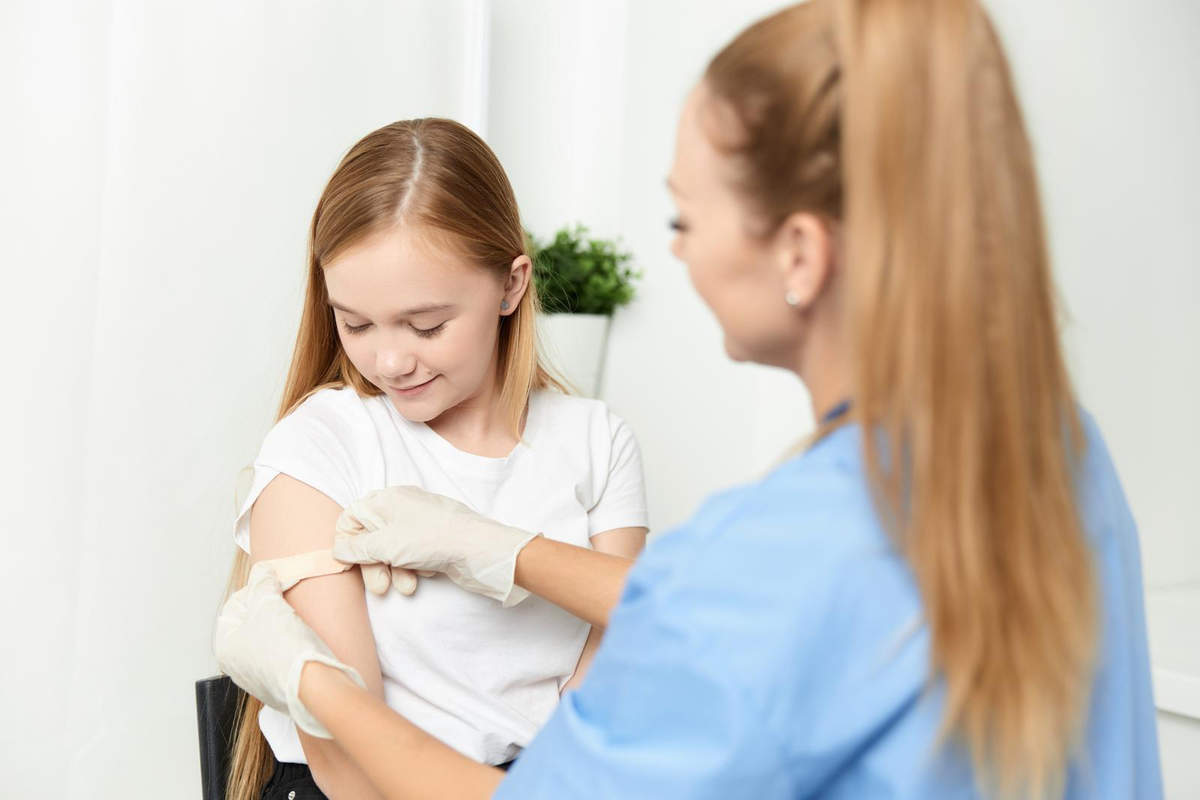According to a new study revealed by The Epoch Times, children and adolescents are at high risk for heart inflammation after receiving Pfizer’s COVID-19 vaccine. This was announced by Jean-Marc Sabatier as of August 3, 2021.
In particular, Food and Drug Administration (FDA) researchers found that myocarditis, a form of heart inflammation, and pericarditis, a related inflammatory condition of the pericardium (protective sac surrounding the heart), reached the safety threshold for children aged 12 to 17 years after the second and third doses.
Inflammation within 7 days
The researchers sought medical records of cases of myocarditis and pericarditis, and they obtained records for 37 of 153 cases. Twenty-seven of these were confirmed as actual cases. These children were hospitalized for an average of 2.8 days. Myocarditis or pericarditis set in within seven days for most patients.
Officials at the U.S. Centers for Disease Control and Prevention (CDC) and researchers around the world say the Pfizer and Moderna vaccines, both of which use messenger RNA (mRNA) technology, cause myocarditis and pericarditis.
Heart disease can lead to long-term problems and even death.
This is exactly what Jean-Marc Sabatier stated on August 3, 2021 in an article. Here it is in its entirety.
Vaccination of children: the opinion of a scientist
“It does not seem advisable, not to say unreasonable, to include children and adolescents in a vaccination strategy against SARS-CoV-2 and its variants,” says Jean-Marc Sabatier*. Interview.

The European Medicines Agency (EMA) recently approved the use of Moderna (Spikevax) and Pfizer-BioNTech (Cormirnaty) mRNA vaccines for children/adolescents aged 12 to 17 years within the 27 countries of the European Union. This decision contrasts with the July 21, 2021, WHO opinion that does not recommend the Covid-19 vaccine for this age group. Why are there such contradictory opinions from the most important health authorities in this field?
The WHO must consider, contrary to the European Medicines Agency, that the benefit/risk ratio of vaccination of the youngest is not favorable. This is also my opinion given the current data on SARS-CoV-2 and Covid-19.
Children/adolescents have a low susceptibility to severe infection with SARS-CoV-2 and its variants (except in special cases of comorbidity), unlike adults.
As of July 22, 2021, approximately 4.13 million children have been infected with SARS-CoV-2 worldwide since the beginning of the pandemic. Currently, approximately 20% of those infected are children or adolescents (<18 years of age). According to the CDC (US Centers for Disease Control and Prevention), the total number of children/adolescents (up to 18 years of age) who have died from Covid-19 is 335 as of July 20, 2021.
Independent of some level of protection conferred by the existence of cross-immunity with other benign seasonal coronaviruses, this low susceptibility of children/adolescents (especially younger children) to SARS-CoV-2 infection is primarily based on their renin-angiotensin system (RAS) which differs from that of adults. This is a complex and ubiquitous hormonal/physiological system (found in many tissues and organs such as the heart, lungs, kidneys, liver, intestines, brain, vascular system, testicles, skin, etc.) involved in renal, pulmonary and cardiovascular autonomic functions. This system, which plays a central role in the functioning of the body in humans (and mammals), is the one specifically targeted by the SARS-CoV-2 virus.
A dysfunctional RAS is the culprit in Covid-19 diseases. Such RAS dysfunction is induced by the binding of SARS-CoV-2 (or the vaccine Spike protein) to the ACE2 (angiotensin-converting enzyme 2) receptor on human target cells.
Is there a difference between children and adults?
Indeed, several scientific studies have highlighted important differences between the RAS of children and adults. Thus, for the same person, the RAS varies from birth to death.
A recent study shows a difference in the distribution/density of the RAS receptor ACE2 (target of the virus) in the nasal mucosa and the alveolar epithelial cells of the lungs.
In addition, the RAS “drives” inflammatory processes and associated cytokine release, as well as innate immunity, which differ between children and adults. For example, there is a strong anti-SARS-CoV-2 protection in younger children via mobilization of eosinophilic granulocytes (mobilization not observed in adults). There is also a protective lymphatic tissue associated with the bronchi, called “BALT” (this is a functional unit promoting antimicrobial immunity by elimination or “clearance” of pathogens). This is accompanied by a decrease in the production of highly deleterious pro-inflammatory cytokines (cytokine storm) responsible for the evolution towards severe forms of Covid-19.
Thus, an infection of children or adolescents by SARS-CoV-2 leads extremely rarely to a very severe or fatal form of the disease. The lethality is to date almost non-existent for this age group of people infected by the virus.
Should young people be vaccinated to prevent transmission of the virus?
This point is of crucial importance. In my opinion, it does not justify immediate vaccination of young people. Indeed, vaccinating individuals does not block the potential transmission of the virus to other individuals, as has been demonstrated by recent studies. In other words, vaccination does not prevent transmission of the virus.
Finally, are there any risks to vaccinating young people?
Even if small, there are potential dangers associated with vaccinating children (and adults). These dangers are based on:
- Ignorance of possible “deleterious” side effects associated -in the long or short term- with vaccination against SARS-CoV-2;
- The use of mRNA vaccines which are the only ones, to date, approved by our health authorities (AEM) for children/adolescents aged 12 to 17 years. Indeed, these are the first vaccines based on messenger RNA technology used in humans, which implies the discovery of possible long-term adverse effects.For all these reasons, it does not seem desirable (not to say unreasonable), at this stage of knowledge, to include children and adolescents in a vaccination strategy against SARS-CoV-2 and its variants. However, it should be remembered that the “classic” vaccines used today in children and adolescents have indeed saved millions of lives over the past decades. This is not to denigrate the usefulness of vaccines that have already proven their worth, but to warn against an unfavorable benefit/risk ratio of vaccination against SARS-CoV-2, for young people aged 12 years and older. In conclusion, I would like to remind you that the younger you are, the less likely you are to develop a severe form of the disease Covid-19, according to the statistics.*Jean-Marc Sabatier, PhD in Cellular Biology and Microbiology, research director at the CNRS, affiliated with the Institute of Neuro-Physio-pathology (INP) of the University of Aix-Marseille
Advocating for Vaccination in Youth
Two physicians who are authorities on vaccination, Dr. Stanley A. Plotkin and Dr. Ofer Levy, published an article in June 2021 in Pediatrics, the American journal of the Academy of Pediatrics, entitled “Consider Mandatory Vaccination of Children Against COVID-19.” In it, the two vaccine pundits explain that vaccinating 12- to 17-year-olds will protect adults. We now know that this is not true. But it is probably because of this publication, in particular, that the authorities of several countries, including France, have decided to vaccinate young people aged 12 to 17!
It should be noted, however, that both doctors have links of interest with large pharmaceutical companies, as stated in the journal: “POTENTIAL CONFLICT OF INTEREST: Dr Plotkin has consulted for Moderna, Janssen, Sanofi, Merck, Codagenix, and Valneva. Dr Levy is an inventor on pending vaccine adjuvant patent applications and served as a consultant for GSK in 2019.”
We get the picture.

